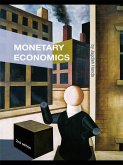To many people, economics is as confusing as physics. Just as we use physics every day even if we don't know its technical aspects, we all use economics on a daily basis even if we don't know its technical aspects. Yet, unlike physics, introductory economics is not as difficult as it might appear at first. However, it is true that economists speak a different "language" in the sense that we often use terms that are not common in everyday conversation. For example, economists use terms such as the natural rate of unemployment, the elasticity of demand, opportunity cost, and comparative advantage. These terms are nothing more than a shorthand way of conveying a general concept that all economists understand, even if they don't necessarily agree with each other's conclusions. While specific terms will be introduced throughout the text, this introductory discussion will focus on some general terms and concepts. What exactly is economics? You are probably familiar with economic terms from watching the nightly news or reading the daily newspaper. Economics is often discussed in terms of unemployment, the stock market, gross national product, the trade deficit, or consumer confidence. However, none of these topics really defines economics. Instead, these are elements of the broader set of questions that economics addresses. Economics is often thought of as a boring, dry field populated with nerdy professors who have spent too much time indoors looking at tables of numbers and discussing how things might work in the real world while ignoring what actually happens in the real world. Such stereotypes are embodied in terms such as "dismal science" and clichés such as "economists know the price of everything but the value of nothing." However, these terms are used by those who do not understand economics and its connection to everyday life. Believe it or not, the vast majority of economists are not concerned (in their professional or academic lives) with the intricacies of the unemployment rate. As in other fields of investigation, such as medicine, engineering, or chemistry, economists often specialize in one or more subfields of investigation. These subfields have many underlying similarities even though they demand specific concepts. Economics, broadly defined, includes the analysis of education, sports, international trade, public policy, strategy, politics, marriage, family development, transportation networks, military conflict, and pollution, as well as the intricacies of the unemployment rate and trade balances. However, even listing these subfields fails to convey what economics is truly about. There are many definitions of economics.
Dieser Download kann aus rechtlichen Gründen nur mit Rechnungsadresse in A, B, CY, CZ, D, DK, EW, E, FIN, F, GR, H, IRL, I, LT, L, LR, M, NL, PL, P, R, S, SLO, SK ausgeliefert werden.









